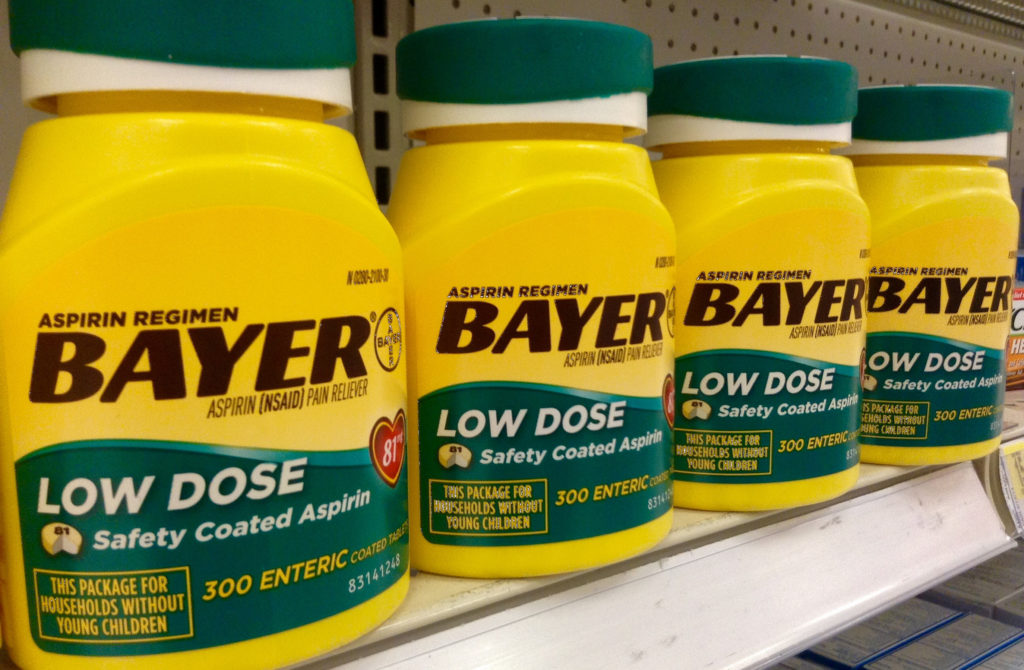Long-term heavy use of non-aspirin non-steroidal anti-inflammatory drugs may be associated with an increased risk of ovarian cancer
Women who use low-dose aspirin (100 mg or less) had a 23% lower risk of developing ovarian cancer when compared with women who did not regularly take aspirin.
This was found by a new research led by Harvard T.H. Chan School of Public Health. The study also found that long-term heavy use of non-aspirin non-steroidal anti-inflammatory drugs (NSAIDs) may be associated with an increased risk of ovarian cancer.
“What really differentiated this study from prior work was that we were able to analyze low-dose aspirin separately from standard dose aspirin,” said Mollie Barnard, a postdoctoral fellow at Huntsman Cancer Institute at the University of Utah, who led this research. “Our findings emphasize that research on aspirin use and cancer risk must consider aspirin dose.”
It’s believed that aspirin lowers ovarian cancer risk by reducing inflammation. While several previous studies have sought to determine if aspirin and other common anti-inflammatory medications influence the risk of ovarian cancer, the findings have been inconsistent.
The study was published online October 4, 2018 in JAMA Oncology.
Inflammation a major factor
A growing body of evidence indicates that inflammation plays a role in the development of ovarian cancer. Researchers have noted that localized inflammation that occurs with ovulation could be a contributing factor.

Aspirin reduces Inflammation
It’s believed that aspirin lowers ovarian cancer risk by reducing inflammation. While several previous studies have sought to determine if aspirin and other common anti-inflammatory medications influence the risk of ovarian cancer, the findings have been inconsistent.
The Study
For this study, researchers, analyzed data on 2,05,498 women who were part of the Nurses’ Health Study and Nurses’ Health Study II. Of those, 1,054 developed ovarian cancer. The researchers looked at the women’s use of aspirin, low-dose aspirin, non-aspirin NSAIDs, and acetaminophen. They also analysed information on the number of tablets used, and the frequency, timing, and duration of use.
The results showed that recent low-dose aspirin use was associated with a lower risk of ovarian cancer while standard-dose aspirin (325 milligrams) use was not. However, the researchers did not observe an increasingly lower ovarian cancer risk with longer durations of low-dose aspirin use. The analysis also suggested that use of non-aspirin NSAIDs, such as ibuprofen and naproxen, when taken in quantities of at least 10 tablets per week for multiple years may be associated with an increased risk of ovarian cancer.
The findings indicate that recommendations made by the U.S. Preventive Services Task Force in 2016 advising older adults who are at an elevated risk of cardiovascular disease to take low-dose aspirin are unlikely to increase the risk of ovarian cancer, the researchers said.
Conclusion
“Our findings expand on two consortium studies showing that daily aspirin is related to lower ovarian cancer risk. Many people take a low-dose aspirin daily for heart disease prevention,” said senior author Shelley Tworoger, associate center director of population science at Moffitt, who also worked on this study while at Harvard Chan School and Brigham and Women’s Hospital. “More research is needed to figure out which women can benefit most from taking low-dose aspirin to reduce their risk of ovarian cancer.”



Thanks for finally writing about >Low-dose
aspirin may lower ovarian cancer risk – Health news, Medibulletin <Liked it!
Greetings from Colorado! I’m bored at work so I decided to browse your blog on my iphone
during lunch break. I enjoy the knowledge you provide here and can’t wait to take a look when I get home.
I’m amazed at how fast your blog loaded on my phone ..
I’m not even using WIFI, just 3G .. Anyways, fantastic blog! http://cado789.com